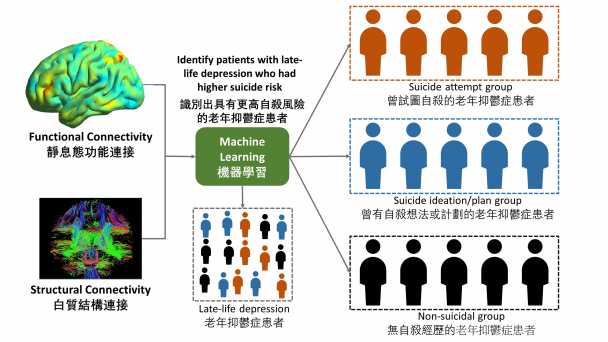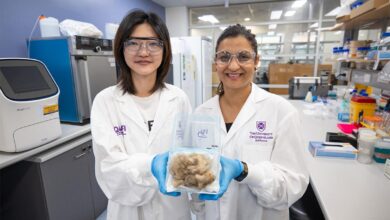HKU State Key Laboratory of Brain and Cognitive Sciences study reveals brain connectivity patterns can predict suicide risk in patients with late-life depression

Suicidal ideation, plans, and behaviours are serious health threats among older adults with late-life depression, resulting in a higher likelihood of death than in any other age group. The increasing prevalence of depression in late life speaks for the urgent need for cost-effective, objective screening of suicide risk.
The current screening for suicide risk primarily relies on structured clinical interviews and questionnaires, which typically consume time and effort to complete.
A study led by Professor Tatia Lee, Director of the State Key Laboratory of Brain and Cognitive Sciences of the University of Hong Kong (HKU), revealed that brain patterns could predict suicide risk in the late-life depression population. The findings have been published in Nature Mental Health.
Professor Lee’s research team utilised connectome-based predictive modelling with whole-brain resting-state functional connectivity (i.e. significantly correlated brain signals between functionally related brain regions in the absence of any stimulus or task) and white matter structural connectivity (i.e. white matter fibre tracts physically interconnecting brain regions) data to predict suicide risk. These two techniques consistently show high test – retest reliability and generalisability across study contexts. The study recruited 91 patients from a hospital diagnosed with major depressive disorder, including 37 non-suicidal patients, 24 patients with suicidal ideation/plan, and 30 patients who attempted suicide. Brain connectivity profiles were used to classify three groups in the dataset and two independent datasets using machine learning. The functional and structural connectivity profiles improved classification-prediction accuracy compared with using questionnaire scores alone and could be applied to identify depressed patients who had higher suicide risk in two independent datasets.
Find out more: HKU




